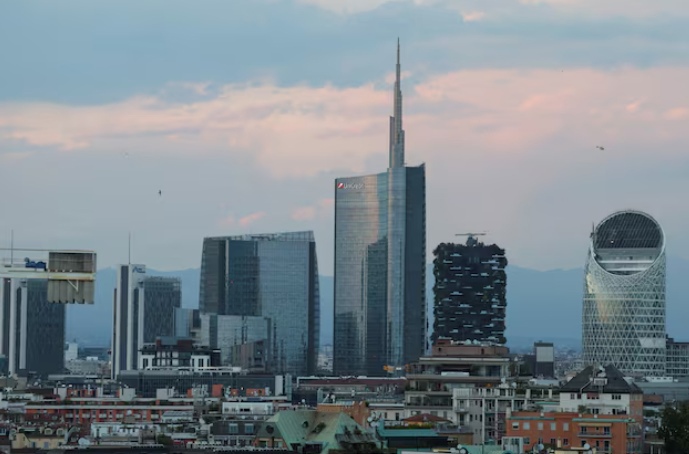The president of the Bank of Italy and former member of the executive board of the European Central Bank, Fabio Panetta, told the annual top-level Catholic summit in the city of Rimini that the European Union needs a so-called “common fiscal capacity” to ensure peace and prosperity, Euractiv reports.
The annual People-to-People Friendship Meeting, organised by the Communion and Liberation movement, is held in this northern Italian city. This year’s meeting, which runs from Tuesday to Saturday, is centred around the theme,“If we do not seek the essential, what are we seeking?”
Panetta, who addressed the meeting in Rimini on Tuesday, chose to dedicate his speech to the EU. He said the EU is necessary because it provides peace and prosperity, but it needs reforms, starting with “common fiscal capacity.”
In his speech, Panetta also warned against “nationalistic impulses that slow down the integration process.” There should be no complacency, he said, as “the collective response to the pandemic has only slowed the trend.”
Panetta also listed challenges and weaknesses that require the EU to “undertake far-reaching reforms and significant investments in the coming years.” He also added:
“Among the reforms, I have already emphasised the importance of creating a common fiscal capacity, without which the current European governance – characterised by a single monetary policy and fragmented budgetary policies at the national level – remains unbalanced. The idea that EMU can function effectively without a centralised fiscal capacity is simply an illusion and must be overcome. A common fiscal policy would correct this imbalance and strengthen cohesion between member countries, facilitating the realisation of large-scale strategic investments.”
Focus on the dual transition
Panetta also recalled “key areas to focus on: the dual transition – environmental and digital – and strategic sectors such as food, energy, health and defence.” These are “supranational public goods that require a co-ordinated approach at European level.”
The central bank chief called for “expanding the single market to include currently excluded sectors such as telecommunications and energy,” as well as “finalising the banking union and implementing the single capital market.”
He also called on Italy to implement the EU’s Next Generation programme at best and reduce public debt, while implementing structural reforms to increase productivity.
